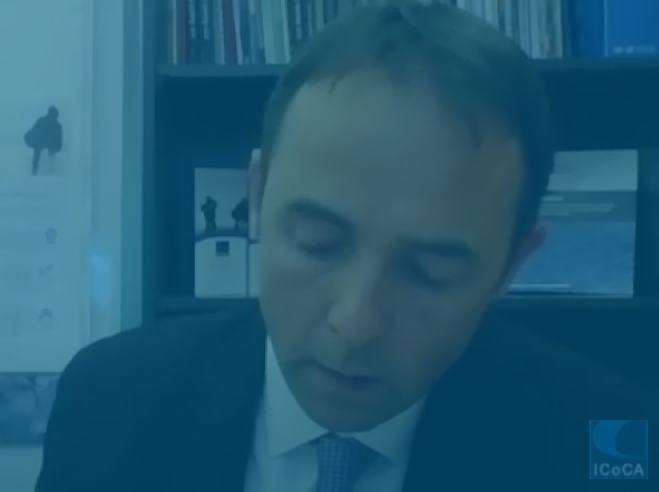Certification
Being ICoCA Certified provides assurance that the company’s procedures and practices comply with the Code. As part of their due diligence, clients across all sectors now require ICoCA Certification in the selection of their private security providers.
Commitment To Code Compliance
Being ICoCA Certified provides assurance that a private security company’s procedures and practices comply with the International Code of Conduct.


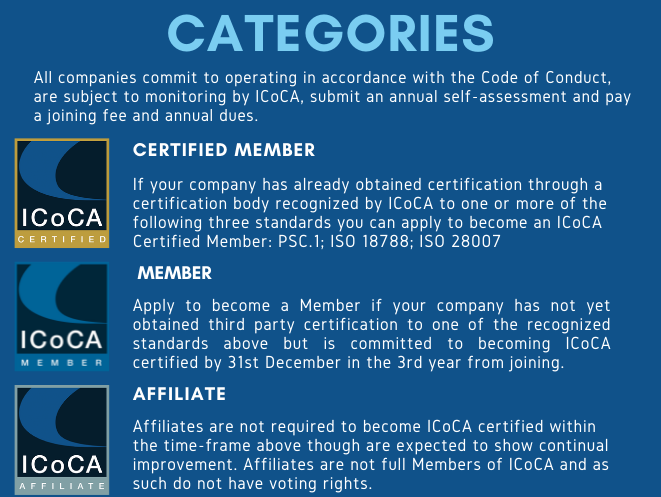


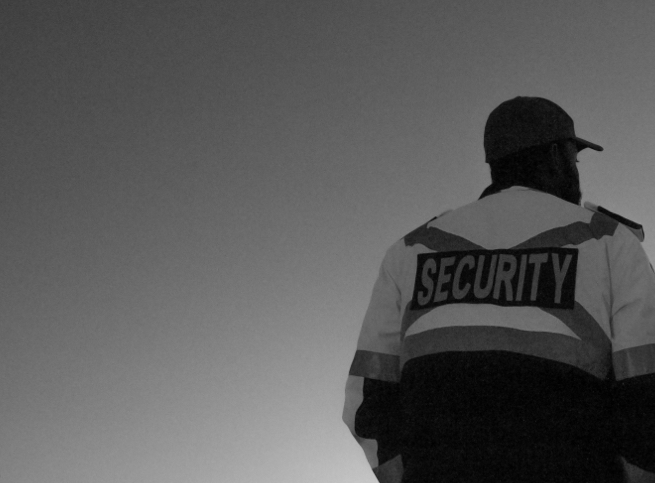


Internal Verifications

Continual Improvement
Due Diligence
ICoCA Certified companies are subjected to the highest level of due diligence, which includes:
- external certification to an ICoCA-recognised standard issued by an independent accredited Certification Body accepted by ICoCA plus additional scrutiny of company policies and procedures conducted by ICoCA to ensure compliance with the requirements of the International Code of Conduct.
- internal verification to human rights and international humanitarian law principles by ICoCA through regular self-assessment and reporting to the Association and ongoing monitoring
- continual improvement through guidance and training on the Code
Eligibility Requirements
Any private security company, whether an ICoCA Transitional Member, Affiliate or a non-Member, can apply for ICoCA Certification. Non-Member companies applying for ICoCA Certification must also join the Association at the moment of applying. PSCs must attain external certification by an accredited Certification Body accepted by ICoCA to certify to one or more of the ICoCA recognised international standards, before applying for ICoCA certification.


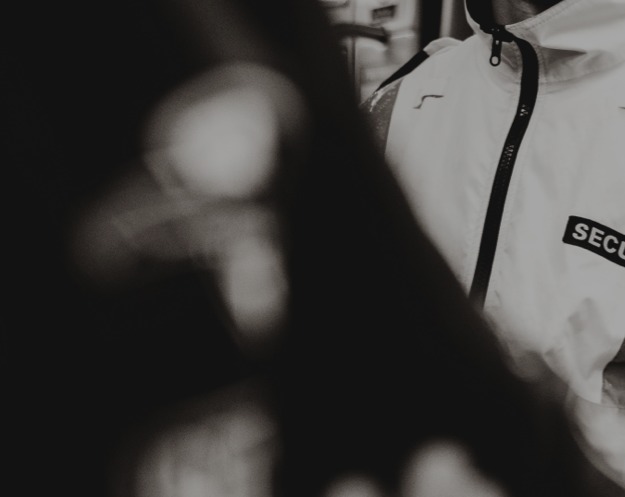
Any PSC can apply for certification but must first attain external certification by an accredited Certification Body accepted by ICoCA to one or more of the ICoCA recognised international standards (see below)

Non-Member companies agree to join the Association and comply with all requirements as Certified Members



- PSC.1 – U.S. standard for companies providing security services on land.
- ISO 18788 – International standard for companies providing security services on land.
- ISO 28007 – International standard for companies providing maritime security services.
Recognised Standards
Companies should provide evidence of certification to at least one of the ICoCA recognised standards. The Board, determines which national or international standards and processes are considered consistent with the Code. Companies may approach ICoCA for consideration of standards and processes not currently recognised.
ICoCA currently recognises three standards.
Accepted Certification Bodies
At present, ICoCA accepts certification from Certification Bodies who are either specifically accredited to the recognised standards by International Accreditation Federation (IAF/MLA) or MLA Members or from Certification bodies accredited to ISO 17021 by IAF/MLA Members and meeting ICoCA competency requirements. If your Certification Body is ISO 17021 accredited and not currently accepted by ICoCA, reach out to the ICoCA team to discuss.


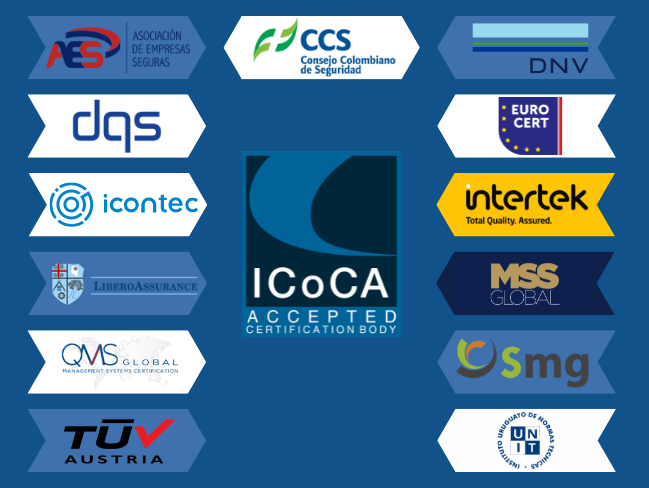
Is ICoCA Certification Worth the Investment?
An increasing number of organisations across all sectors are using ICoCA Membership and Certification as required or preferred criteria in private security service contracting. These include: Philip Morris International; Syngenta; the Swiss, UK and US governments; ABN Amro;

